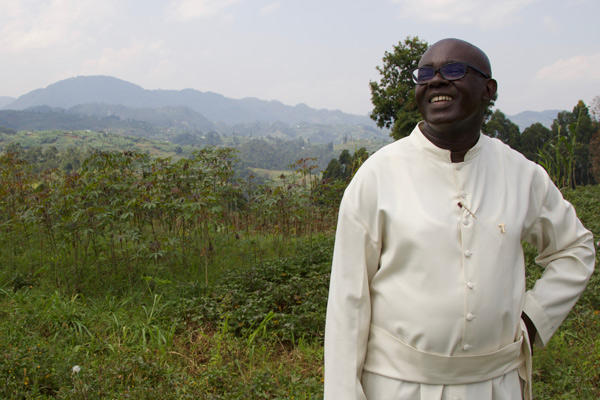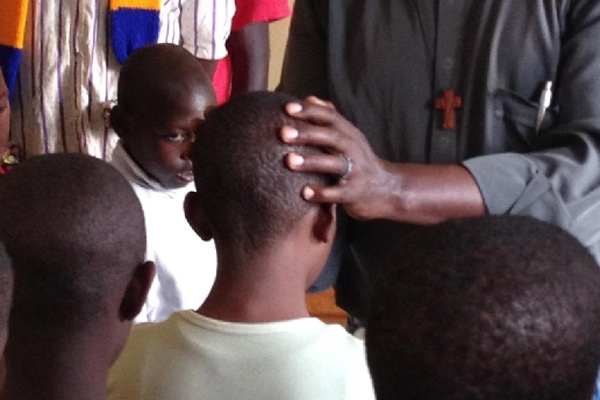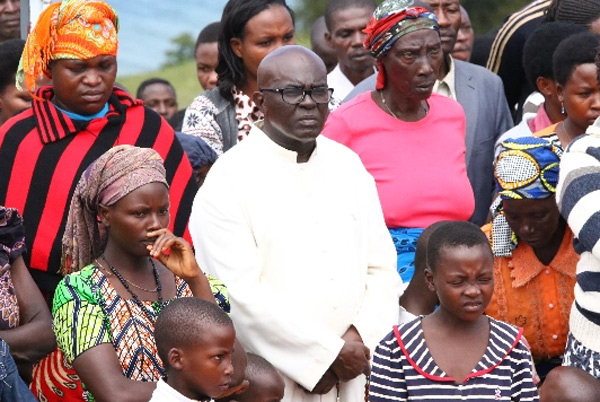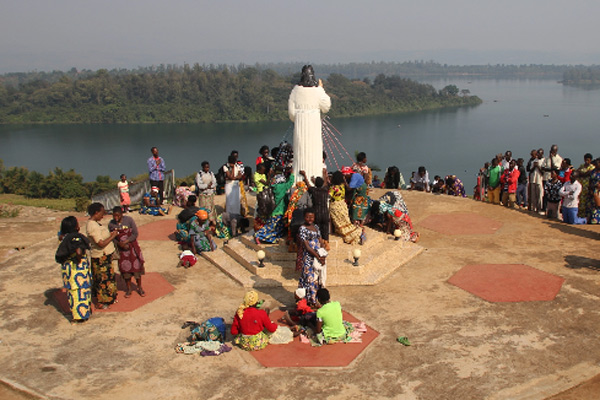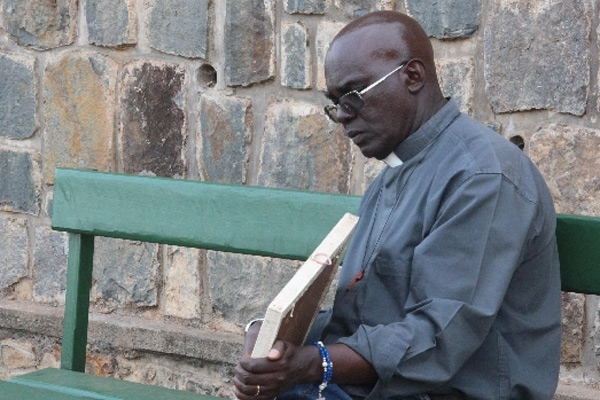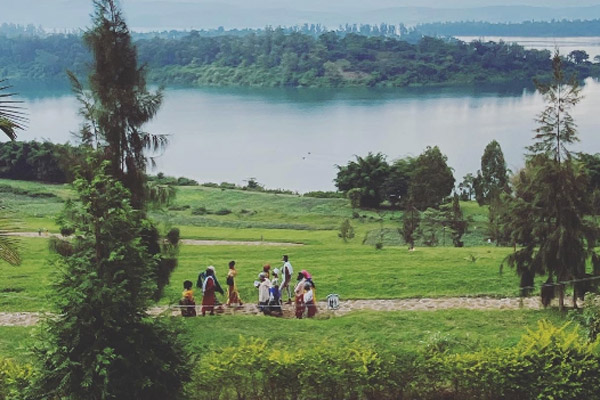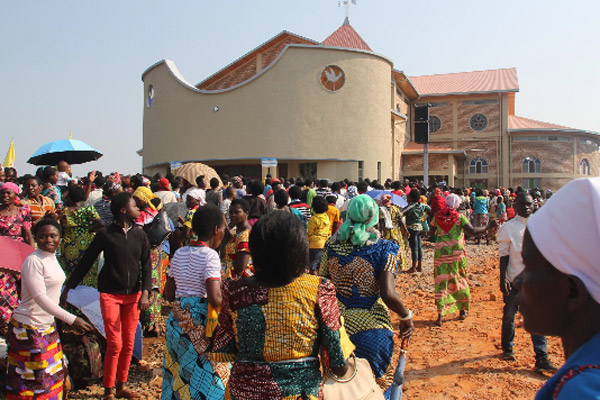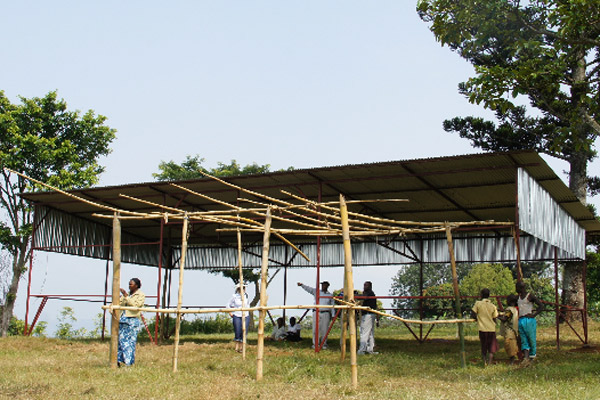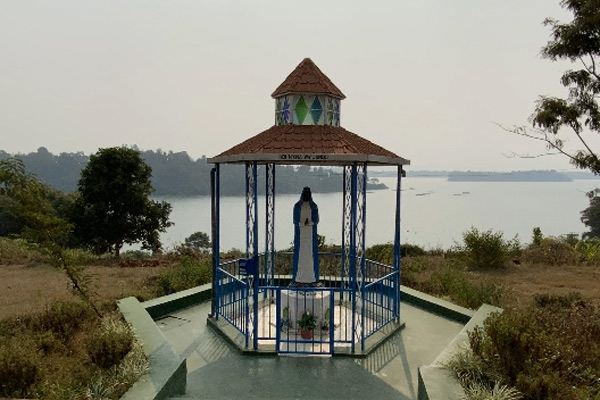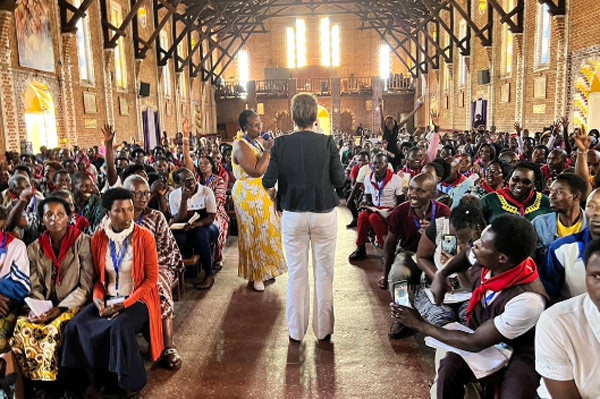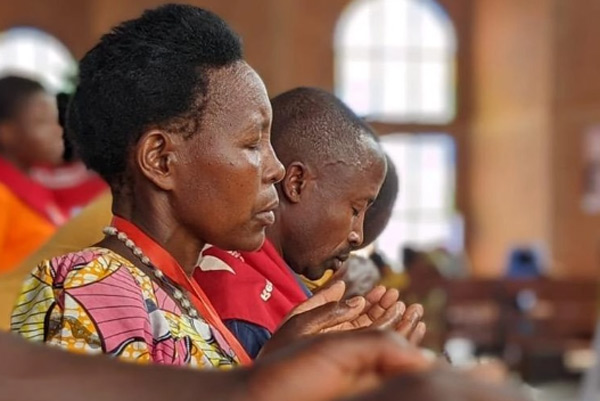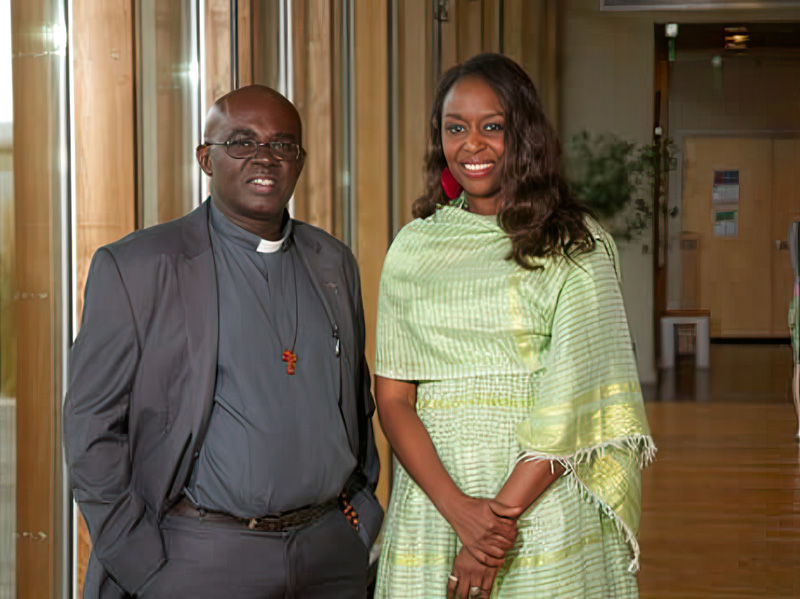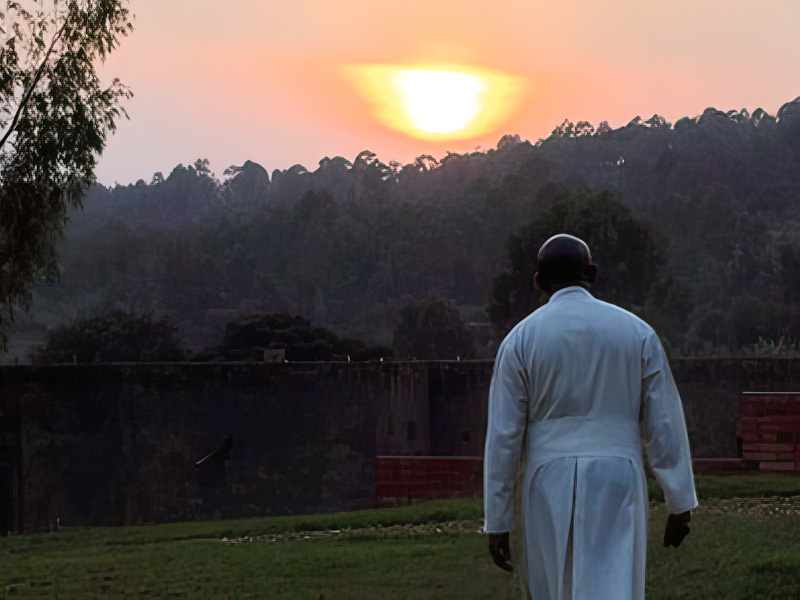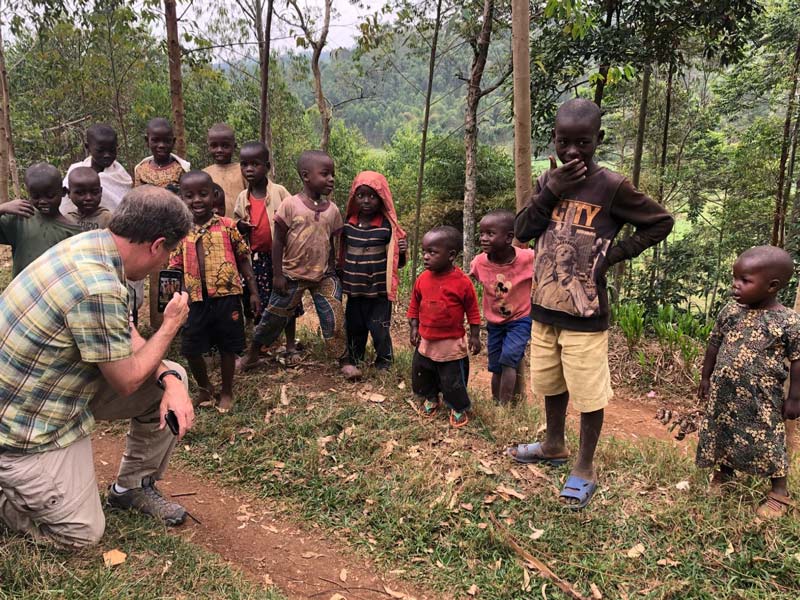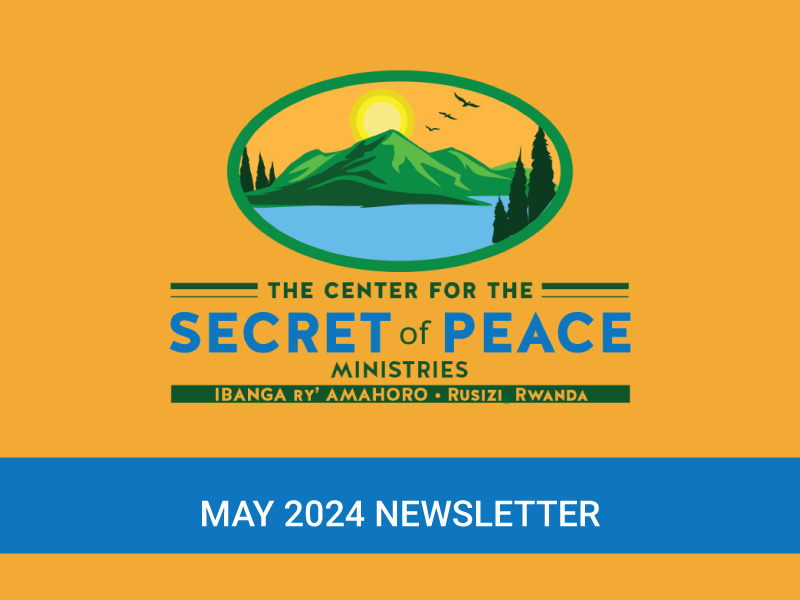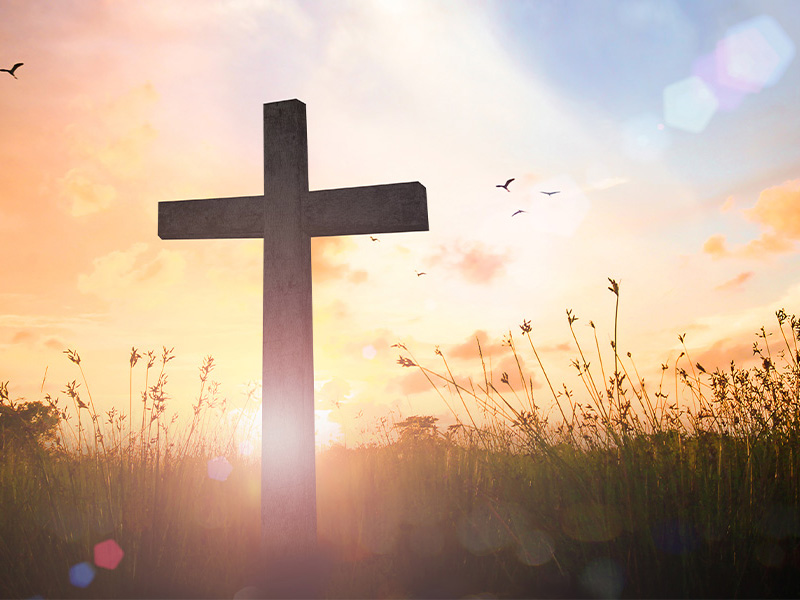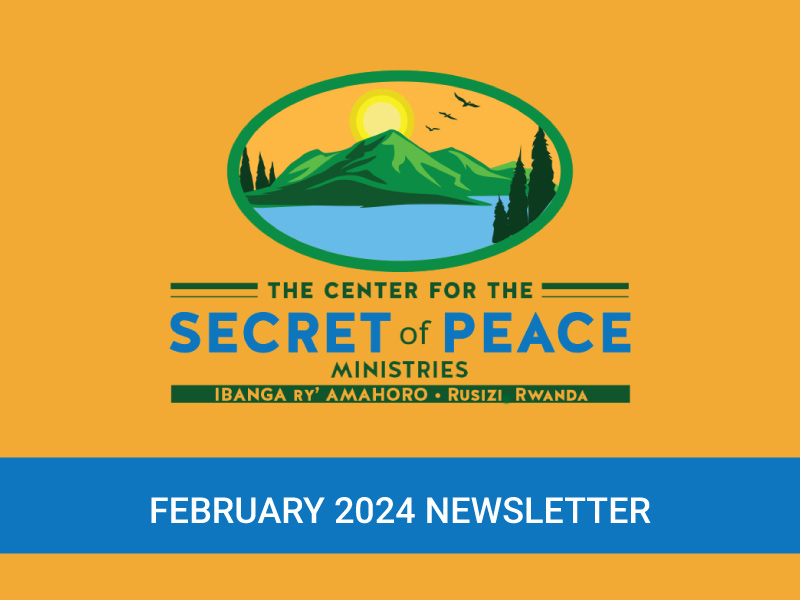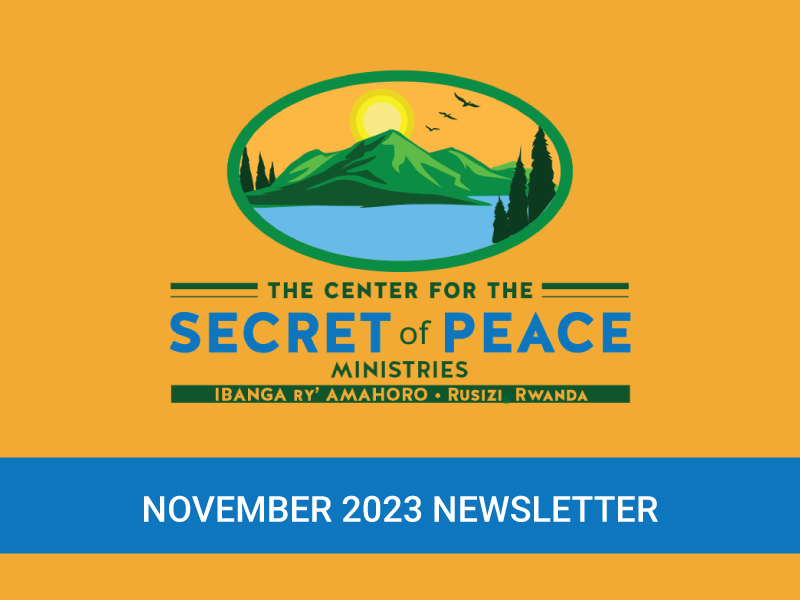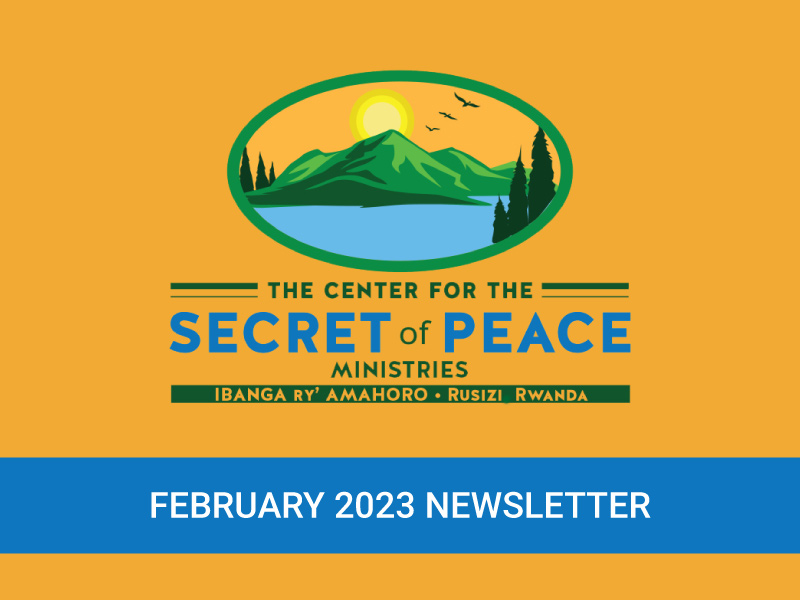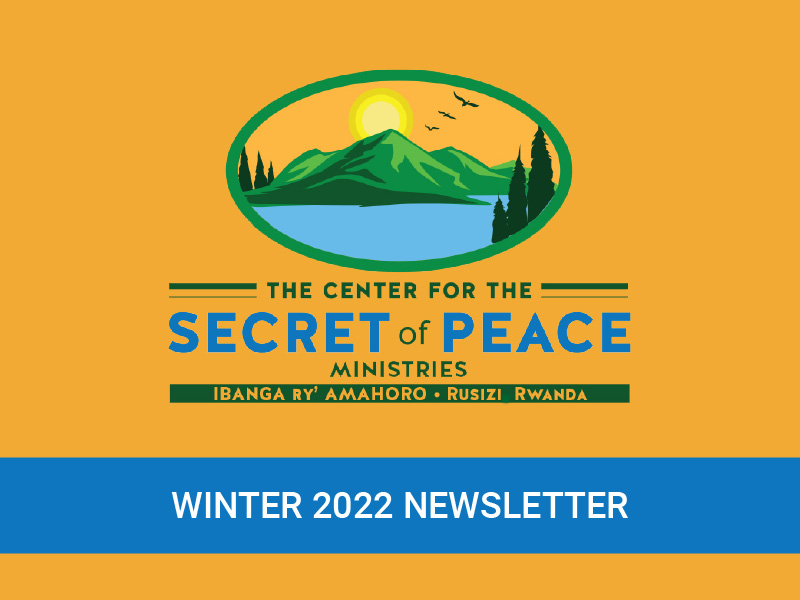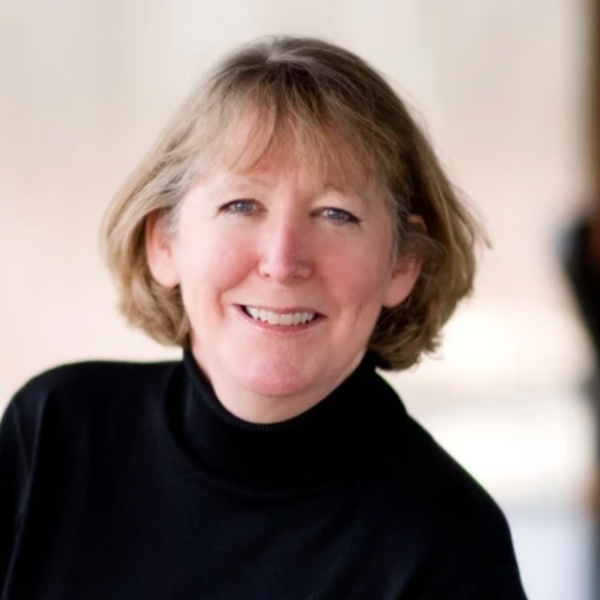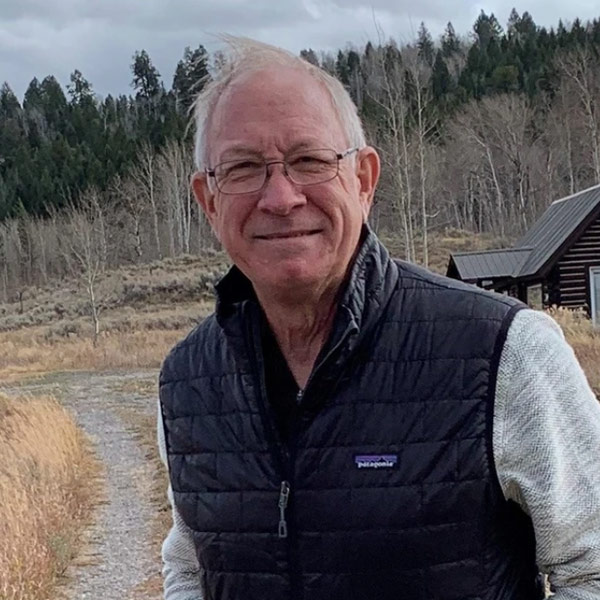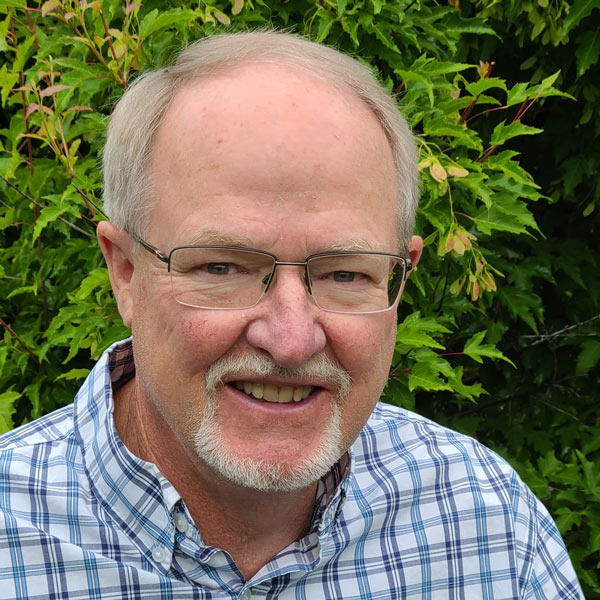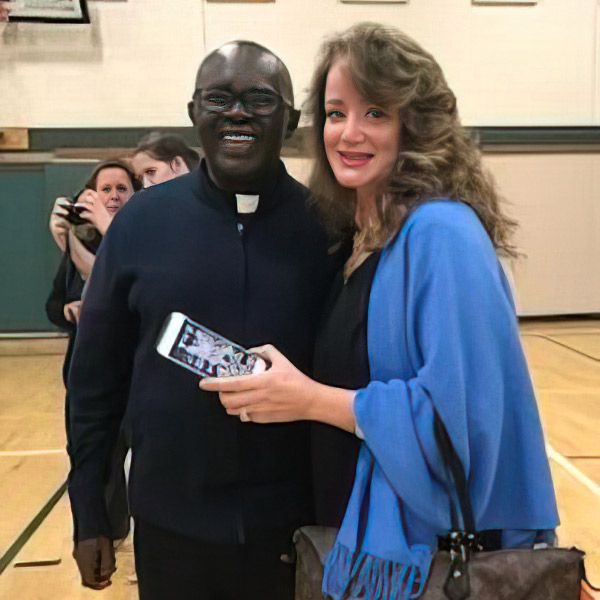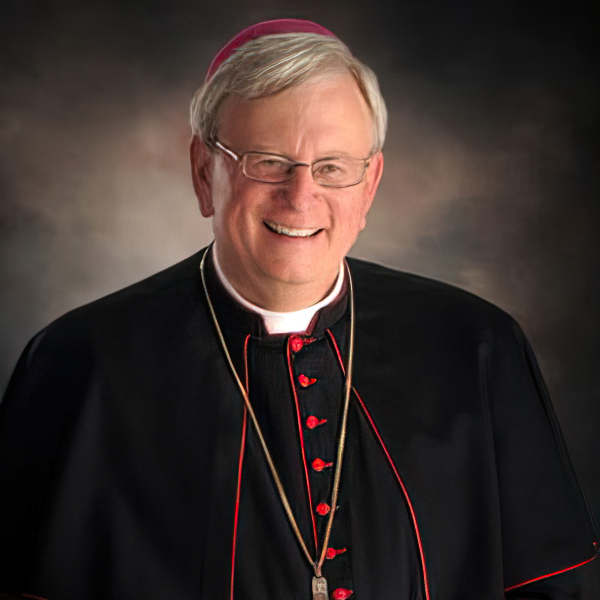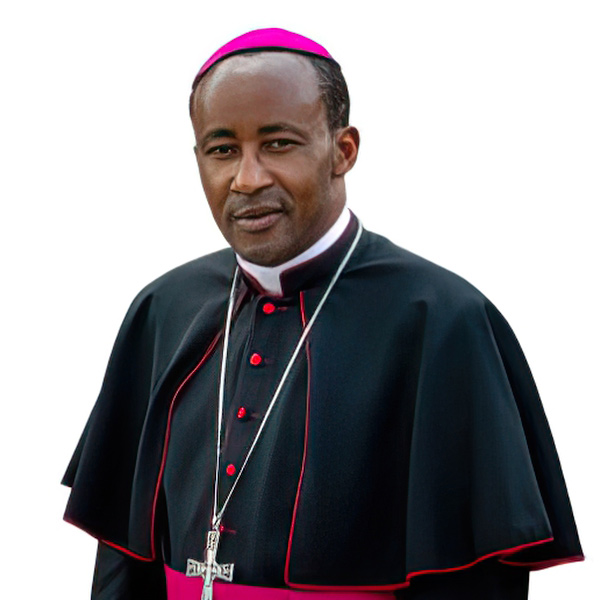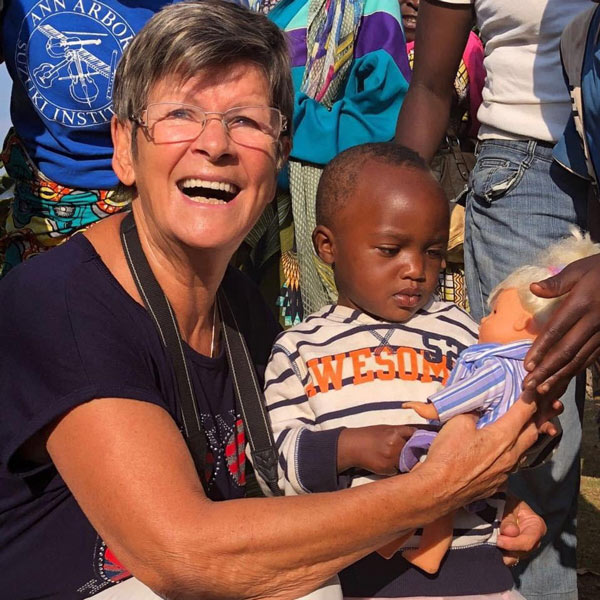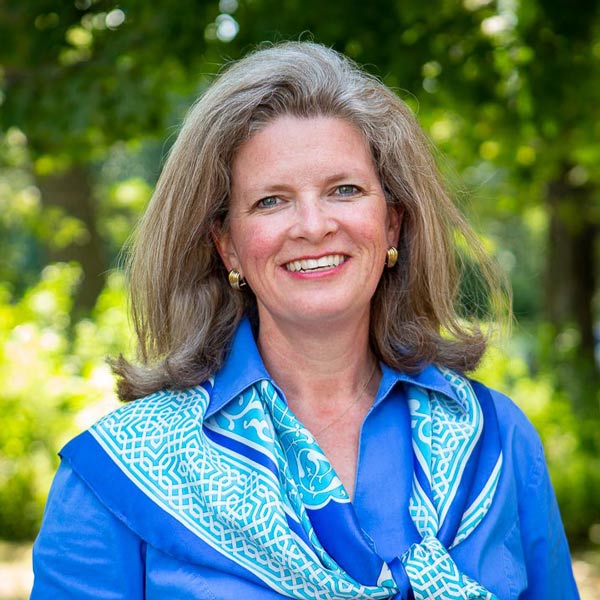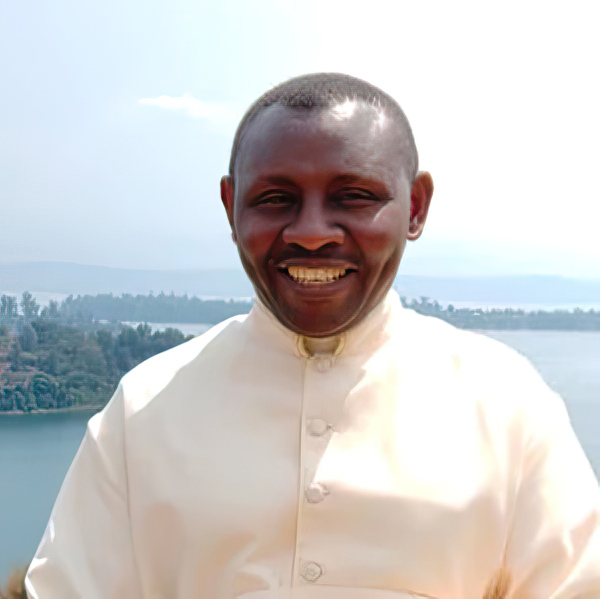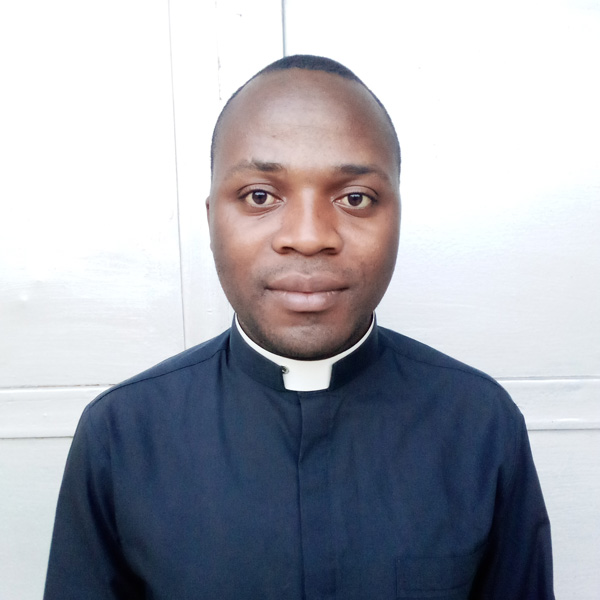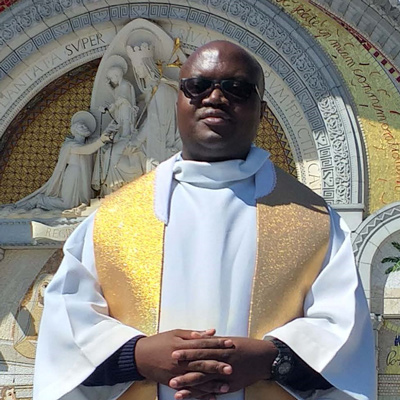11 Steps to Forgiveness
June 24, 201311 Steps to Forgiveness
June 24, 2013Extreme Horror Requires Extreme Forgiveness
February 2013
My name is Father Ubald RUGIRANGOGA I am the oldest of 4 children, 3 brothers and 1 sister in my family. When I was a child, some nights I would go with my mother and hide in the bush. I was about 5 or 6 years old. I didn’t understand why we had to sleep in the bush when we had a house. I learned later that it was because of our ethnicity. People from tutsi ethnicity were persecuted in Rwanda. One night, people from hutu ethnicity attacked families from tutsi ethnicity and beat soundly all the men. My father was one of the victims. He had been so hurt that he couldn’t walk; he was getting massage from my mother. When he recovered, he took me to school; I was ready to learn at elementary school. I went with him to school every morning. He was teacher.
At that time I felt happy, our family was a rich one until the night of sword. What is it in fact? That night, in 1963, all men of my village from tutsi ethnicity were killed by sword. My father was one of the victims; he was killed with his brother, and with many other members of the family. From that day, I became an orphan and my mother a widow, with 4 children. Nobody to have mercy, there was hatred everywhere. It was horror and fear. My mother had to fight alone in order to feed her children. My family became poor; my mother had to cultivate the earth. It was really the struggle for life.
That is in a few words the account of my childhood, the killing of my father and the hard work of my mother in order to feed her children after she became a widow. That was the beginning of the way of the cross.
My way of the cross: I was the first one to become aware of the new reality, to help my mother working hard, to realise that there was no father any more in family, that I and my two brothers and sister were orphans. We didn’t eat meat in our family; we didn’t drink any more tea because we had no money to buy them. Our mother took care of us, has helped each of us spiritually and at the end of elementary school, I was chosen to go and study in the priesthood school.
My two first years in that priesthood school were without problems; my mother worked hard and could pay my school fees. During my third year, my brother also joined me at the same priesthood school and from that moment, my mother had serious problems getting money in order to pay school fees for us both. When I took the money for school fees, my brother did the same. When I took money for travel, my brother did the same. Everything I needed, he had the same right. When our mother remarked that we took all the money she had at the house, she wept. It was my second time to see her weep, the first one was when our father was killed.
1 Those mother’s tears when we took all the money from the house will be a later occasion of my priesthood vocation. My mother went on working hard for us and unfortunately in 1973; we had to flee, my brother and me to Burundi in order to escape from hutu seminarian students who wanted to kill us because of belonging to tutsi ethnicity.
Refuge in Burundi
It was Sunday evening 26/02/1973, when seminarians from Hutu ethnicity wanted to kill those from tutsi ethnicity. The priests who couldn’t control the situation helped us to escape. In fact, it was politicians who had excited the hutu seminarians in order to make trouble in society. Arriving at home it was also trouble. We had no choice, my brother and I, we left our mother, and fled to Burundi where I went on studying from 1973 till 1978. As a teenager, I lost my faith and was converted by the Virgin Mary when praying the rosary.
My conversion
It was an afternoon coming back from playing football at 16ho’clock when Nasaire Kibuti shared with me that he felt well, that he had to go and take shower, pray his rosary and then study. I didn’t understand because I was one of those who didn’t like prayers even though we were in priesthood school. It was a heated discussion with him trying to convince me to pray. At that time Prayer had no place in my life. Nasaire had lost the argument because we were so many against him, in fact other seminarians came to listen to us discussing on prayer. It was a good debate and many of the others agreed with me. Nasaire went away ashamed and I was so proud for a few minutes, but in my mind I was not so quiet. I went to the chapel to see if Nasaire was praying his rosary. Arriving there I saw Nasaire praying carefully his rosary. He was not alone, there were about 30 other seminarians praying. It was an occasion of conversion and the beginning of the new life. Remarking that there were seminarians who prayed freely without any priest behind them, I took that prayer as serious and tried to pray also. I pray the rosary helped by my fingers because I had no rosary. When it came time to pray the mystery, I did not know the mysteries so thought about my life. When thinking about my life I discovered that God took care of me even if I didn’t pray to him. My question was this “How did my mother have money for school fees, for me and for my brother”?! I remembered the day she had wept when we took all the money from the house at the beginning of the school year. There was no doubt in my mind God had helped her to get the money and also because we were refugees, HCR had helped us with school fees.
2 I discovered the presence of God in my life. I felt happy, I had prayed. The days after, I continued praying the rosary and the conviction of God’s love became so great to me that I decided to offer all my life to him by becoming a priest. Yes, I had to become a priest in order to preach love in Rwanda.
If I was a refugee in Burundi, it meant that Rwandese people didn’t love each other.
In 1978, I was finished with minor seminary studies in Burundi and went back to Rwanda.
Back to Rwanda in order to preach love
I arrived in Rwanda in 1978 and began with my major studies in the seminary of Nyakibanda. In July 1984 I was ordained a priest and had my first mission in Nyamasheke parish, cyangugu Diocese in Rwanda. I tried to preach love and live love. In 1987, I felt a new vocation to pray for healing of sick people. In 1991 I received from God a knowledge gift. I was the pastor in the parish, happy to serve God. I preached many retreats at the parish in order to help Christians to grow in faith and love. What a horrible surprise when the genocide against the people from tutsi ethnicity occurred.
I realised that people from hutu ethnicity in my parish, killed their brothers and sisters in faith. Myself I escaped miraculously, they wanted me to be killed also, they didn’t recognise me as their pastor. What a pity, 45000 people from tutsi ethnicity were killed in 3 days. They were, refugees at the parish. This news devastated me at the Bishop’s house where I was a refugee after being chased from my parish. Every night I wept thinking that I had just failed!
To become a priest in order to preach love and live love and as your fruit you have genocide in your parish! At the bishop’s house where I took refuge, people from my parish wanted my head to be cut off and to have a procession with it on a stake. First, I was ready to be killed and accompany many of my parishioners put on the sword to heaven.
When I was praying I listened to God’s voice telling me that I had to get refuge abroad because he wanted me to survive and evangelise.
In the evening of 27/5/1994, I escaped with a guide through the bush; we crossed the Rusizi River and arrived in Congo, former Zaire, in the morning of 28/5/1994. I escaped the genocide against tutsi to evangelise. After 2 months in Congo, I have been invited to go to France at paray le Monial and witness that Jesus is alive. I arrived there at the end of July. I spoke for the first time to more than 5000 people about what happened in Rwanda. It was horror; it was so hard to forgive, my heart was broken; I claimed that I 3 forgave those who killed my mother, my parishioners, my relatives. Unfortunately I went on weeping every night until I was healed at Lourdes during the Stations of the Cross. I had not accepted my cross to carry. The genocide against people of tutsi ethnicity was for me a cross to carry. Without accepting it as a cross to carry, nobody can forgive.
Forgiveness and reconciliation
The genocide against the Tutsis had hurt me so much that I felt tired. I was like a commander of an army who had lost the fight. I needed new energy to go on fighting. After 6 months in Europe, 6months of rest and prayers. I decided to go back to Rwanda. I arrived in Rwanda 5/01/1995. I had no time to lose, I immediately began to help people with their inner wounds, listening to them, and praying with them. I said masses with healing prayers. Many people were helped and I realised why God told me to go and get refuge abroad when I hid myself in Bishop’s house. It was to evangelise and help people to begin with new life, to speak about forgiveness and reconciliation. It was not easy. The victims of genocide were so angry against to those who made genocide to them. Those who made genocide were not ready to beg pardon even to recognise that they had made genocide. It took a long time to convince the victims to forgive and those who made genocide to beg pardon. After 4 years of evangelisation, speaking at about forgiveness and reconciliation, praying for healing all over the country, my Bishop gave me a new mission, to be pastor of Mushaka parish. I had been there after evangelisation in prison. I had experience of people who had made genocide against tutsi ethnicity already in prison; I had to have experience of victims of genocide as pastor of the parish. I arrived in the parish when the catholic Rwandese church was helping Christians to think about ethnic problems in synod. I did my best to help parishioners to think about that ethnic problem and they concluded that to be from hutu ethnicity or tutsi ethnicity was not a problem, the real problem was ideology. Every one was created in God’s image. We had to fight together against genocide ideology in society. I helped Christians to fight it by preaching retreats.
Retreats for victims of genocide
People from tutsi ethnicity who escaped genocide against them were afraid of their offenders who were coming out of prison. They were thinking that they would kill them in order to remove all signs of genocide. No survivor from genocide could live; so they thought. The retreat I had with them helped them. After praying we read in Romans12, 21 where Saint Paul says “Do not be conquered by evil but conquer evil with good”.
4 God’s word had to guide us in all discussions and the victims of genocide at the end of the retreat were ready to forgive because the good one must triumph over the bad one.
Retreat for those who made genocide
God’s word in Romans12, 21 has helped them as well. After praying, I preached, encouraging them to beg pardon in order to be free. They also concluded from their retreat, that the good one must triumph over the bad one.
Retreat for victims of genocide, perpetrators and rescuers.
Victims of genocide, perpetrators of genocide and rescuers of victims of genocide had a retreat together. The victims of the genocide against tutsi ethnicity had inner wounds, they thought that every one from hutu ethnicity were bad because those who killed their relatives were executing in the name of hutu ethnicity. I changed that. It was an error. How have I changed it?! I invited the victims of genocide to stand up, I invited the rescuers to go and stand next to the one he rescued. The rescuers were from hutu ethnicity. I remarked that every victim of genocide was surrounded by 6 or 7 people from hutu ethnicity who worked together during the genocide to save him. To rescue a tutsi during the genocide time was not so easy. You hid him at your home and when your family was suspected, you gave him to another family and so on till he was saved, rescued. I asked the victims of genocide if all people from hutu ethnicity were bad people and they answered that those who rescued them were good ones.
I went on explaining that to belong to such an ethnicity is not a bad thing, what is bad is the ideology. To those who perpetrated genocide, I told, that when they were killing tutsi people, those from hutu ethnicity as themselves, who were good Christians were rescuing tutsi instead of killing them. It was time for conversion in order to forgive and to beg pardon. We have always been helped by God’s word in Romans 12, 21.
That retreat was so successful that it was the start of new life, for forgiveness and reconciliation. Their discussions were open and respectful. When the time arrived for the government to get information from the people of how the genocide occurred against the tutsi people, to prepare Gacaca Jurisdiction, the parishioners of Mushaka parish revealed the 5 truth. The parishioners of Mushaka parish facilitated the traditional court, Gacaca, which had to judge those who made genocide. It was at the end of the traditional court that the Christians of Mushaka parish decided that those who made genocide had to be spiritually helped by getting some lessons of catechesis. It took them 6 months. After 3 months of catechesis, the one who made genocide takes a break to go see the victims of genocide in families. He begs pardon and comes again accompanied by the widow or orphans who plead for him to go ahead with catechesis after forgiving him. At the end of this process, it is time to receive communion of Eucharist sacrament once again. It is a great feast of forgiveness and reconciliation at the parish.
There are so many witnesses to show that people can once more live together after the genocide. Me personally, I have forgiven the killer of my mother during the genocide and have paid the school fees for his two children. They had nobody to take care of them when their mother died and their Father was in prison. They are now finished with high school and I am ready to continue paying for their university studies. Forgiveness requires mercy. Without mercy your forgiveness is not complete. A son married a daughter, whose father had killed his father and made his mother a widow.
They now have a happy family with two children. They made a decision to get married after listening to me preaching. The good one triumphs over the bad one and forgiveness makes you free. Extreme horror requires extreme forgiveness.
Father Ubald RUGIRANGOGA

